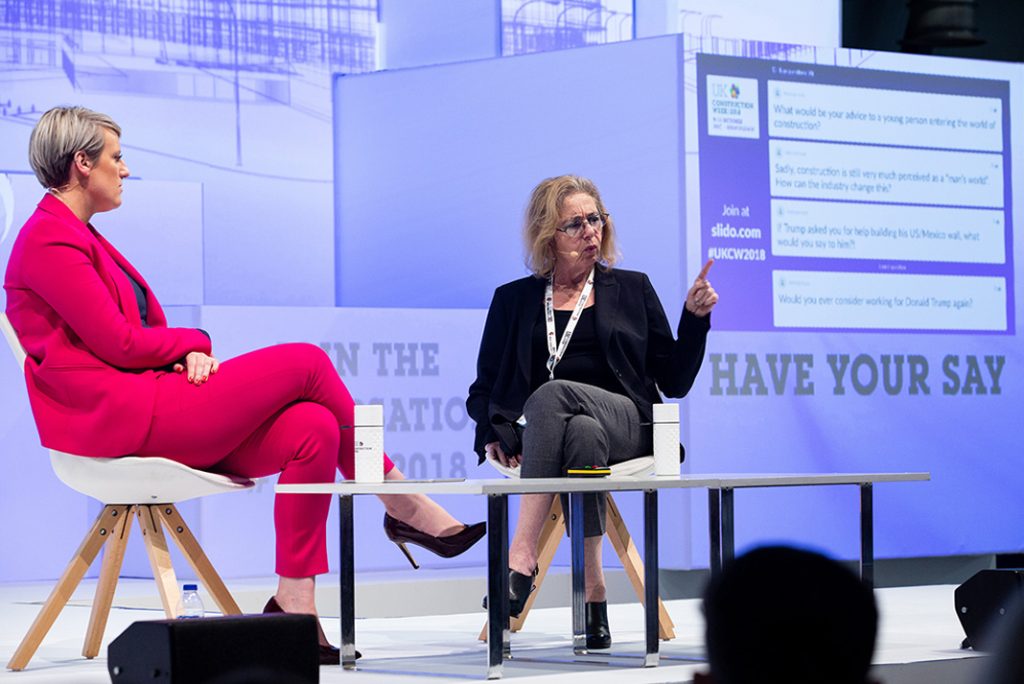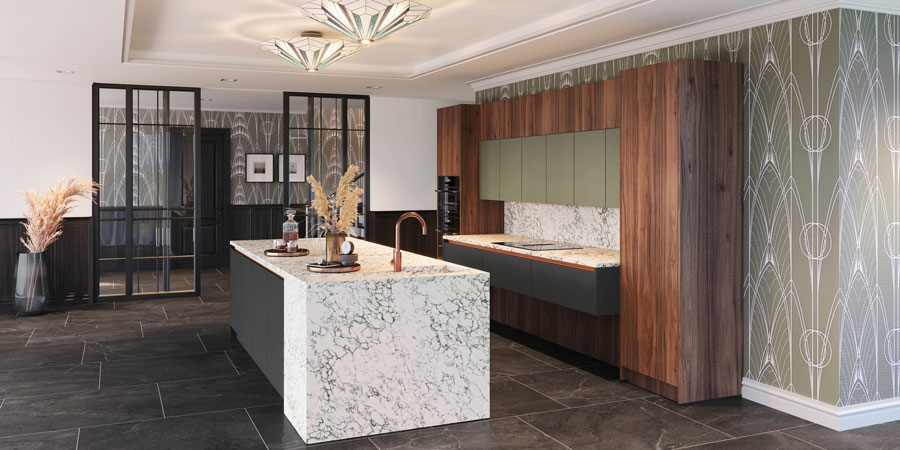Housing crisis solutions shared at UKCW

 Calls for more government investment to end the housing crisis, boost opportunities for SME housebuilders and developers and build genuinely affordable quality homes, were some of the strong messages coming from this year’s UK Construction Week (UKCW).
Calls for more government investment to end the housing crisis, boost opportunities for SME housebuilders and developers and build genuinely affordable quality homes, were some of the strong messages coming from this year’s UK Construction Week (UKCW).
In a series of debates with key industry speakers on day two, discussion around the UK’s current housing crisis drew in the crowds.
Hosted by BBC reporter and presenter Steph McGovern, a panel of experts delved further into issues such as the availability of land, the powers to enable local authorities’ own building programmes and opportunities for smaller building firms.
Ruth Davison, executive director of public impact at National Housing Federation, said: “To solve the housing crisis, 50% of land must be allocated to building affordable homes. Research shows that the UK needs 340,000 homes a year and that 90,000 of these homes need to be genuinely affordable.”
Alex Ely, principal at Mae Architects, pointed out that the last time housing supply met demand was in the 1960s, when half of all housing was social.
At this time, land was more readily available. But Bjorn Conway, chief executive officer at Ilke Homes felt this isn’t the main issue today: “There are lots of small plots available but they’re not being built on because it’s not economic for large developers. I can see really good volume and development opportunities for SME housebuilders and developers.”
Leading the discussion on to how new housing can be delivered, Steph McGovern talked about construction companies needing to evolve into technology companies: “Start with the business processes that will drive productivity and focus on technology that will improve them.”
Bjorn Conway supported this statement, adding: “Using technology and modern methods of construction will ensure we can build quicker without compromising on quality and design. It will add capacity to the construction industry while building high-quality homes.”
Quality was also the focus of a packed-out seminar on construction standards post-Grenfell. As one of the speakers, building regulations expert Geoff Wilkinson commented: “We need to build to the standards we say we will. We need everyone to stand up for quality, to say we’re not going to be part of a culture where everyone designs down to a minimum or looks on regulatory compliance as an optional extra. We should ensure that you can’t start work on housing or any other project until it’s had independent approval, you can’t vary the design or specification until it’s been checked, and you can’t occupy a building until it’s been proved you have built what you said you would.”
Elsewhere, there was standing-room only as keynote speaker and Trump Tower project manager, Barbara Res, discussed the challenges she faced as a woman working in a male-dominated environment and her experience of working with Donald Trump. Barbara concluded the live interview, conducted by Steph McGovern on the UKCW main stage, by encouraging women in construction to talk to each other and not to blame themselves when faced with discrimination.
Other highlights of the week-long event included a lively debate around digital construction, where it was concluded that the future lies with improved planning, more consistent procurement by government, integrated software systems, the education of the young and the development of hybrid solutions.
Elsewhere, Lord David Blunkett discussed how to address the skills gap in construction; property expert and TV presenter, Kunle Barker, lead a vibrant panel debate on diversity, equality and inclusion; and the Passivhaus 2019 student competition was launched with an aim to arm the next generation of architects and designers with the tools and design skills needed to deliver sustainable buildings.




















